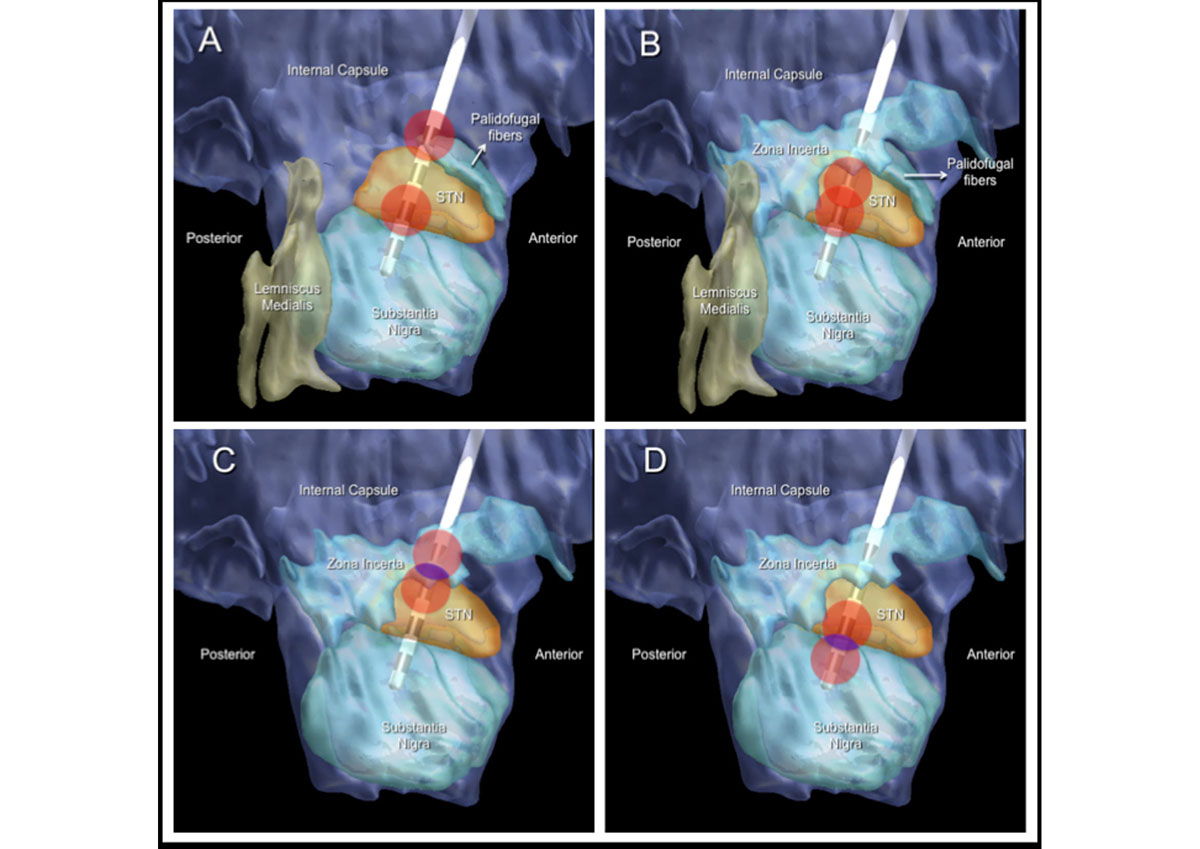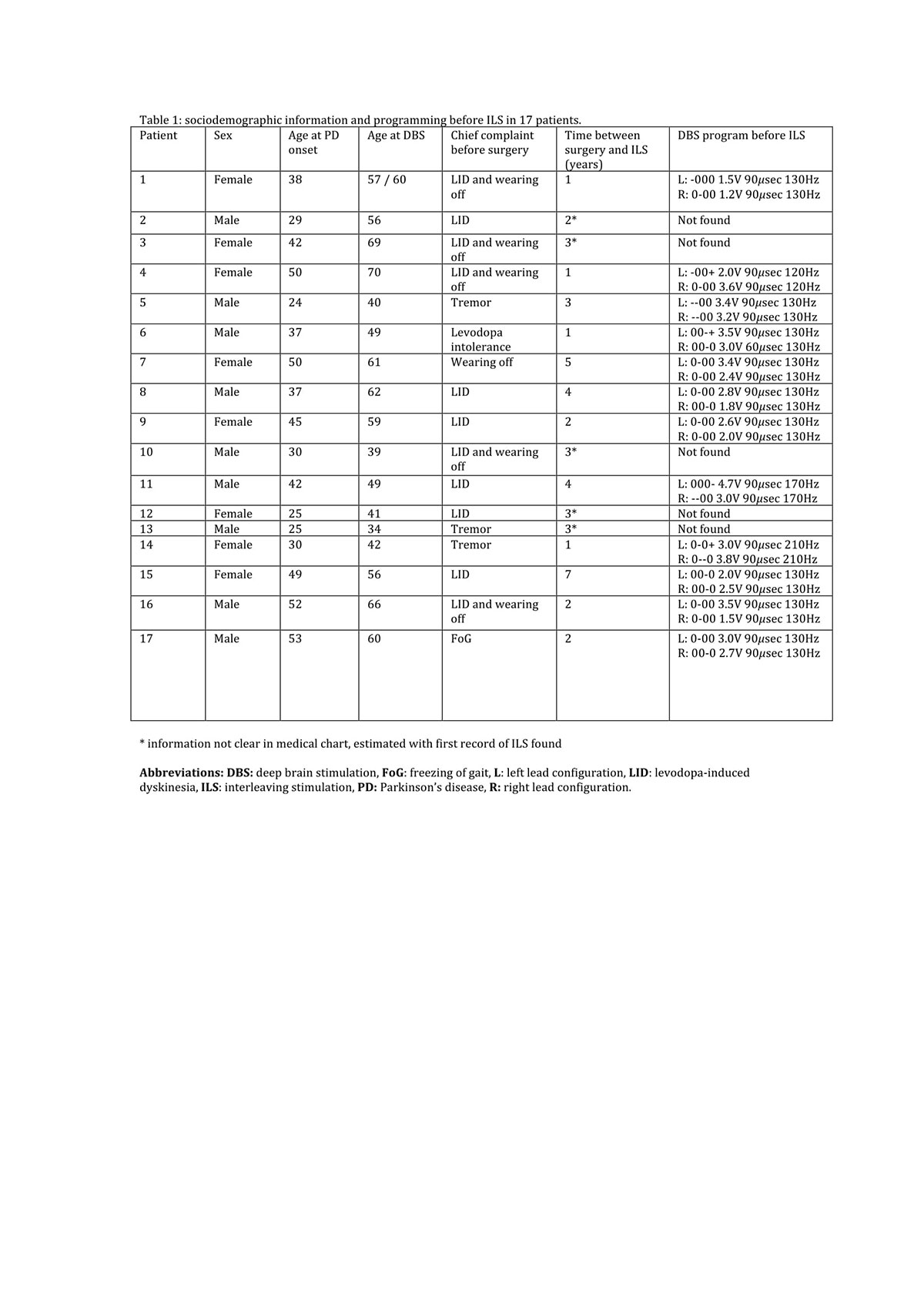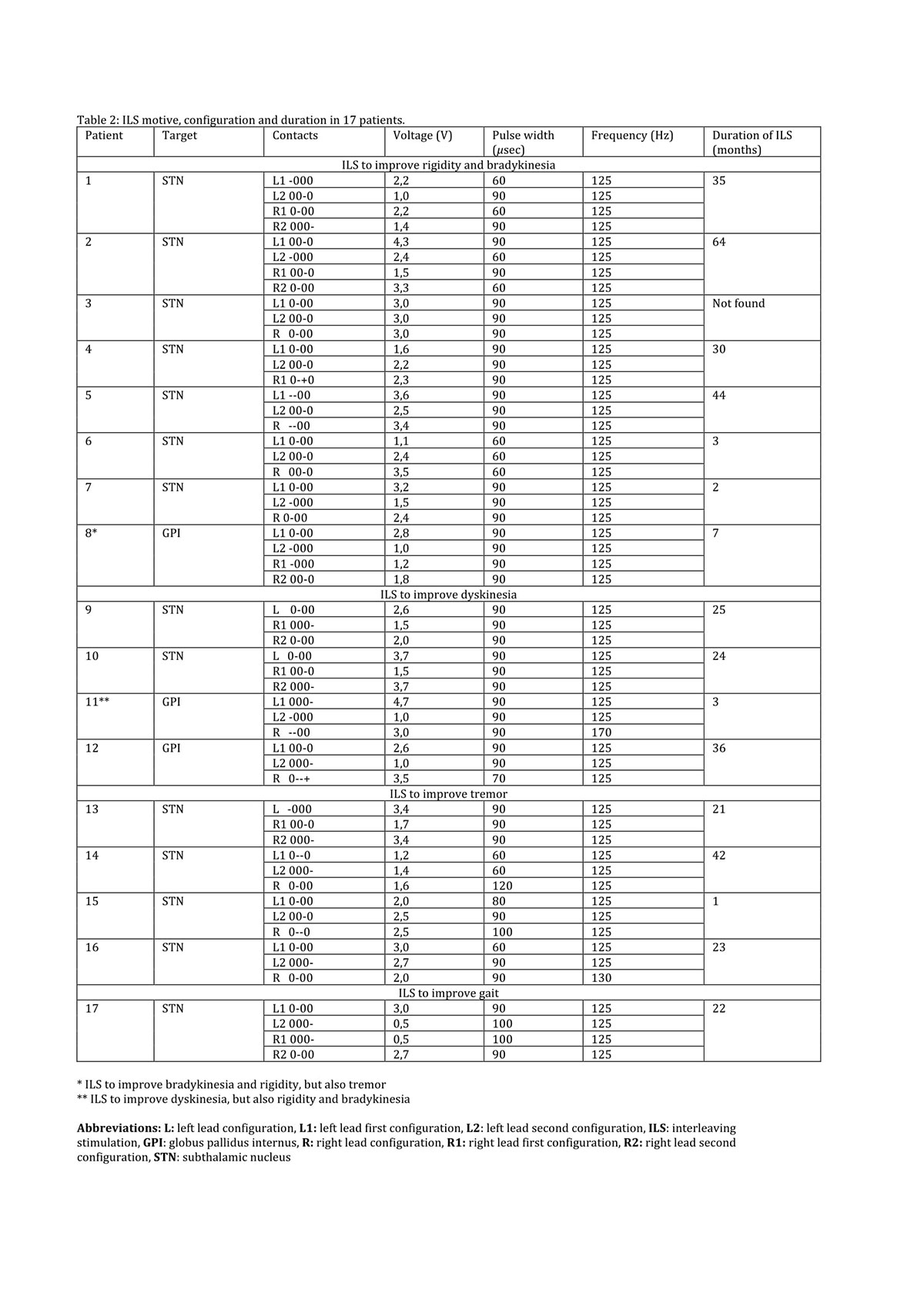Session Information
Date: Tuesday, September 24, 2019
Session Title: Parkinsonisms and Parkinson-Plus
Session Time: 1:45pm-3:15pm
Location: Agora 3 West, Level 3
Objective: Overview our patients’ experience with ILS and explore clinical scenarios in which ILS should be considered when programming DBS in PD patients.
Background: Interleaving stimulation (ILS) is an available stimulation strategy that can help the physician manage more challenging cases of patients with deep brain stimulation (DBS) for Parkinson’s disease. (PD) It consists in altering two different programs on the electrode with the same frequency.
Method: We retrospectively reviewed medical charts from 120 PD patients treated with DBS between 2011 and 2018.
Results: Eighteen patients received ILS. One was excluded due to incomplete medical chart. The remaining 17 patients had subthalamic nucleus DBS (14) and globus pallidus internus DBS (3). Eight patients (47%) received ILS to improve rigidity and bradykinesia, 4 to improve dyskinesias, 4 due to refractory tremor, and 1 for gait management [figure1]. Until the end of data collection, 13 of 17 patients (70%) were still on ILS, with a mean duration time of 28.8 months (2 – 44). Four patients reported no benefit from ILS and had their program changed. [table 1][table 2]
Conclusion: Overall, ILS is useful to i) use two contacts that optimally improve two specific symptoms, but have different therapeutic windows, ii) avoid side effects related to current spreading to nearby areas, iii) increase frequency in a small region or iv) stimulate a larger target area.
To cite this abstract in AMA style:
C. França, E. Barbosa, R. Iglesio, M. Teixeira, R. Cury. Interleaving stimulation in Parkinson’s disease: interesting to whom? [abstract]. Mov Disord. 2019; 34 (suppl 2). https://www.mdsabstracts.org/abstract/interleaving-stimulation-in-parkinsons-disease-interesting-to-whom/. Accessed April 22, 2025.« Back to 2019 International Congress
MDS Abstracts - https://www.mdsabstracts.org/abstract/interleaving-stimulation-in-parkinsons-disease-interesting-to-whom/



